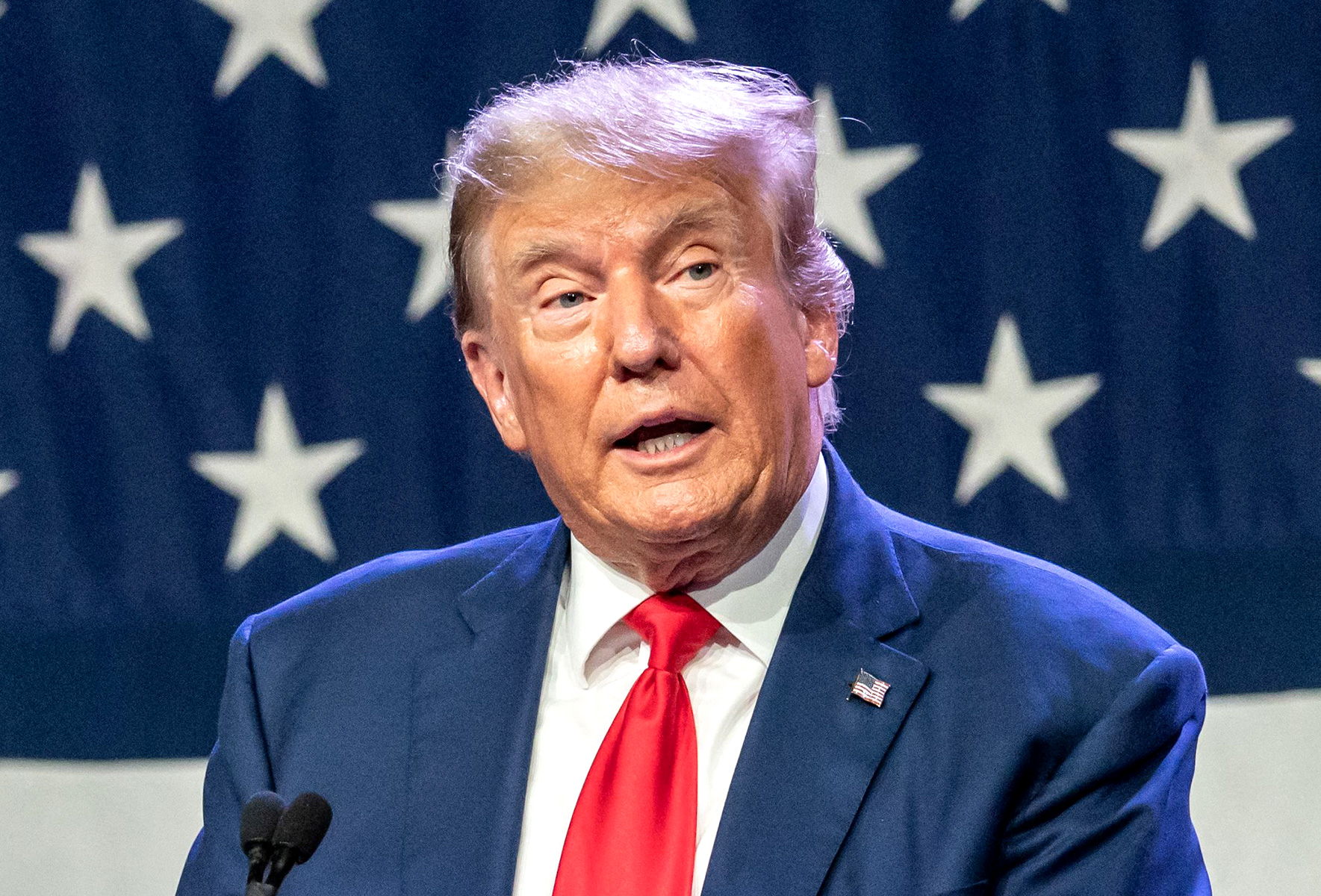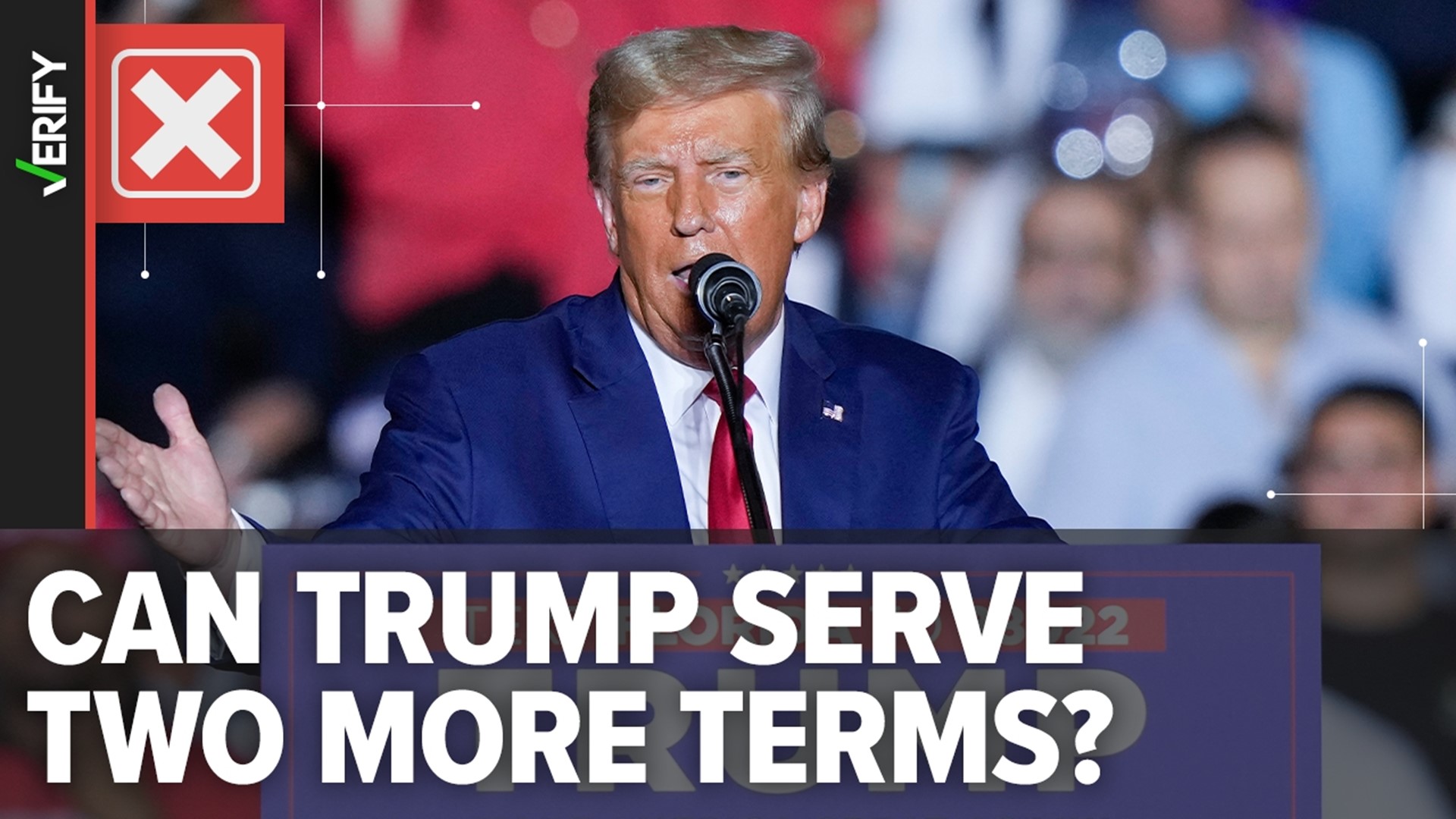Could Trump be vice president in 2028? This question has sparked intense debates among political analysts, legal experts, and the general public. As former President Donald Trump continues to remain a dominant figure in American politics, the possibility of him holding another high-ranking office in the future cannot be dismissed. With his strong influence and polarizing presence, the idea of Trump as vice president raises important questions about the U.S. Constitution, political dynamics, and the potential implications for the nation.
The idea of Trump becoming vice president in 2028 is not merely speculative. It touches on legal precedents, constitutional interpretations, and the evolving landscape of American politics. While some argue that the 22nd Amendment prohibits him from running for president again, the vice presidency remains a plausible alternative. This article explores the legal framework, historical context, and political implications surrounding this intriguing scenario.
In this in-depth analysis, we will delve into the key factors that could influence Trump's potential candidacy for the vice presidency. From the constitutional requirements to the political strategies involved, this article aims to provide clarity on whether Trump could realistically assume the role of vice president in 2028 and what it might mean for the future of American governance.
Read also:Unlocking The Power Of Lube Match Shell Shell Oil Selector Your Ultimate Guide To Optimal Lubrication
Table of Contents
- Legal Considerations: Can Trump Serve as Vice President?
- Trump's Political Journey: A Brief Overview
- Constitutional Requirements for Vice Presidency
- Political Strategies: How Trump Could Achieve the Role
- Historical Precedents: Lessons from the Past
- Public Opinion: What Do Americans Think?
- Potential Impact on American Politics
- International Perspective: How the World Views Trump's Potential Return
- Challenges and Obstacles: What Stands in Trump's Way?
- Conclusion: Could Trump Be Vice President in 2028?
Legal Considerations: Can Trump Serve as Vice President?
Understanding the 22nd Amendment
The 22nd Amendment to the U.S. Constitution explicitly limits an individual to two terms as president. However, it does not impose restrictions on serving as vice president. This distinction opens the door for former presidents like Trump to seek the vice presidency. Legal experts emphasize that the Constitution does not explicitly prohibit a former president from holding the office of vice president, leaving the possibility open.
Interpreting the Constitution
Constitutional scholars have debated the implications of allowing a former president to serve as vice president. While some argue that it aligns with the spirit of the Constitution, others raise concerns about the concentration of power. The vice president is first in line to succeed the president, meaning Trump could potentially return to the presidency under certain circumstances. This raises important questions about the balance of power and the intentions behind the 22nd Amendment.
Trump's Political Journey: A Brief Overview
Donald Trump's political career began with his election as the 45th president of the United States in 2016. Known for his unconventional approach to politics, Trump implemented policies that polarized the nation. His presidency was marked by significant achievements, including tax reforms and deregulation, as well as controversies surrounding his handling of domestic and international issues.
Below is a summary of Trump's key political milestones:
- 2015: Announced his candidacy for the presidency.
- 2016: Won the presidential election against Hillary Clinton.
- 2020: Lost the re-election bid to Joe Biden.
- 2021: Played a significant role in the January 6 Capitol riot controversy.
Constitutional Requirements for Vice Presidency
The U.S. Constitution outlines specific qualifications for the vice presidency. According to Article II, Section 1, Clause 5, the vice president must meet the same eligibility criteria as the president. These include being a natural-born citizen, at least 35 years old, and a resident of the United States for at least 14 years. Trump fulfills all these requirements, making him eligible to serve as vice president.
Key Qualifications
- Natural-born citizen: Trump was born in Queens, New York.
- Age: Trump turned 35 in 1986, well before his political career began.
- Residency: Trump has lived in the United States for his entire life.
Political Strategies: How Trump Could Achieve the Role
Building a Coalition
To become vice president in 2028, Trump would need to secure the support of a major political party. Given his influence within the Republican Party, he could leverage his connections to secure a nomination. Building a coalition of supporters would involve aligning with key party figures and addressing concerns about his past controversies.
Read also:Tailblazer Kemono The Ultimate Guide To Exploring A Cultural Phenomenon
Running as a Running Mate
Another potential strategy involves Trump running as a vice presidential candidate alongside a more moderate presidential nominee. This approach could help unify the party and appeal to a broader electorate. However, it would require Trump to accept a subordinate role, which might not align with his ambitious nature.
Historical Precedents: Lessons from the Past
History offers valuable insights into the potential of former presidents serving as vice presidents. While no former president has held the office of vice president, there have been instances where former officeholders returned to lower-ranking positions. For example, John Quincy Adams served in the House of Representatives after his presidency. These examples demonstrate that returning to public service after holding the presidency is not unprecedented.
Comparative Analysis
- John Quincy Adams: Returned to Congress after his presidency.
- Andrew Johnson: Served as a senator after being impeached as president.
Public Opinion: What Do Americans Think?
Public opinion plays a crucial role in shaping political outcomes. Recent polls indicate that opinions on Trump's potential return to office are deeply divided. While some Americans view him as a strong leader capable of driving change, others remain skeptical of his leadership style and past actions. Understanding these dynamics is essential for predicting the likelihood of Trump becoming vice president in 2028.
Key Polling Data
- 45% of respondents support Trump running for vice president.
- 50% oppose the idea.
- 5% are undecided.
Potential Impact on American Politics
If Trump were to become vice president in 2028, it could have significant implications for American politics. His presence in the office could influence policy decisions, shape the national agenda, and alter the dynamics of the Republican Party. Additionally, the possibility of Trump ascending to the presidency through succession would raise important questions about the future of American governance.
Policy Implications
- Revival of Trump-era policies, such as tax cuts and deregulation.
- Potential rollback of environmental regulations.
- Focus on trade negotiations and international alliances.
International Perspective: How the World Views Trump's Potential Return
Trump's potential return to office in any capacity generates significant interest on the global stage. Allies and adversaries alike have expressed mixed reactions to the idea of Trump serving as vice president. While some nations view him as a strong negotiator, others remain concerned about his approach to international relations.
Global Reactions
- European Union: Concerned about the impact on climate agreements.
- China: Cautious about trade negotiations.
- Russia: Interested in potential diplomatic opportunities.
Challenges and Obstacles: What Stands in Trump's Way?
Despite the legal and political possibilities, several challenges could hinder Trump's path to the vice presidency. Legal issues, public perception, and party dynamics all play a role in determining the feasibility of his candidacy. Addressing these obstacles will require strategic planning and effective communication.
Key Challenges
- Ongoing legal proceedings related to his presidency.
- Polarized public opinion regarding his leadership style.
- Resistance from moderate Republicans and independents.
Conclusion: Could Trump Be Vice President in 2028?
In conclusion, the question of whether Trump could be vice president in 2028 remains open. While the Constitution does not explicitly prohibit him from holding the office, several factors could influence the outcome. Legal considerations, public opinion, and political strategies will all play a role in determining the feasibility of his candidacy. As the 2028 election approaches, it is essential for Americans to engage in informed discussions about the implications of Trump's potential return to office.
We invite readers to share their thoughts and opinions in the comments section below. Your feedback helps us better understand the perspectives shaping this important debate. Additionally, feel free to explore other articles on our site for more insights into American politics and governance.


